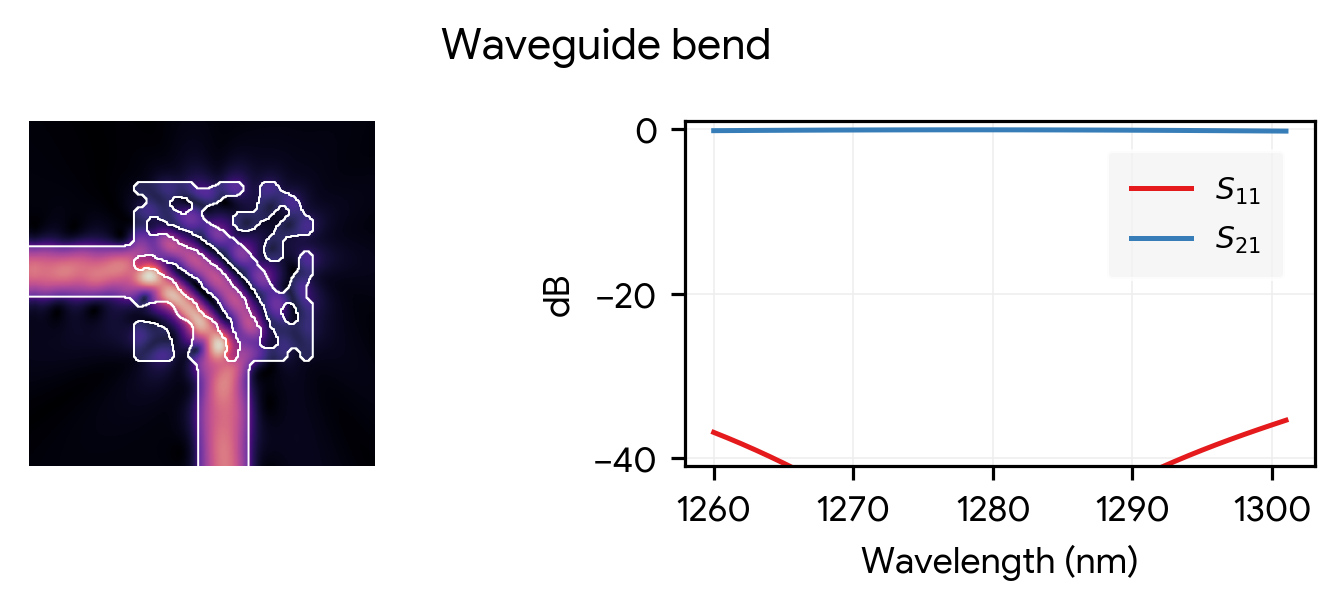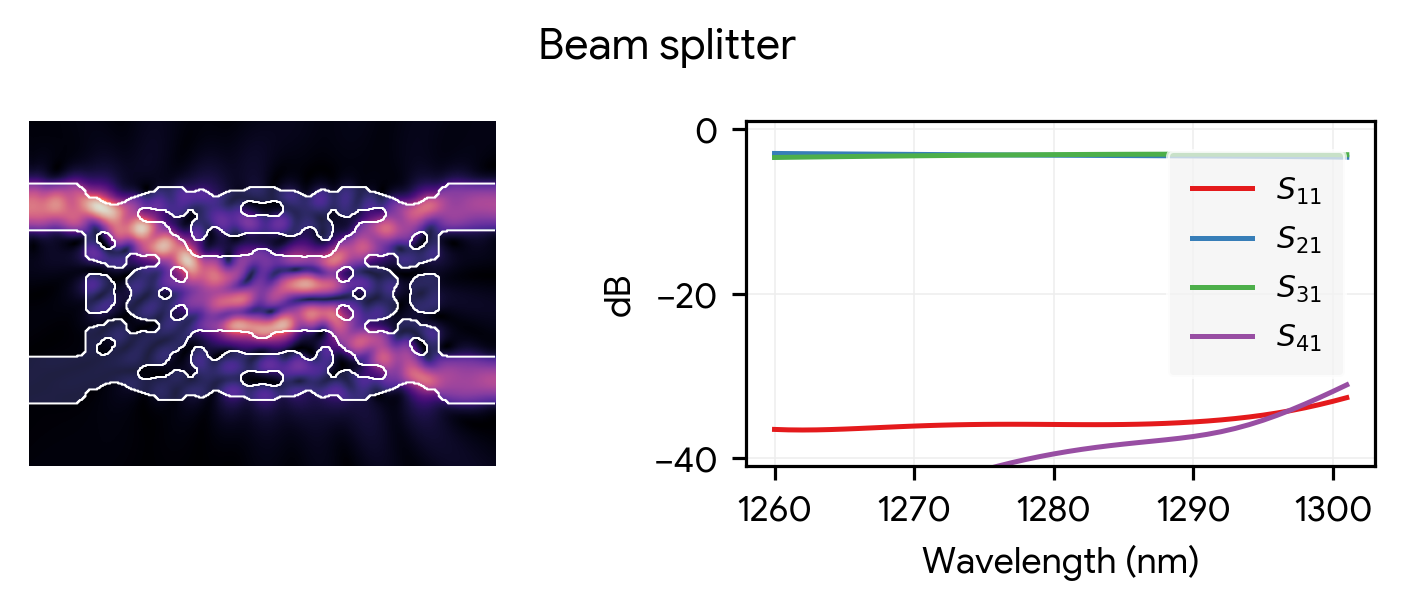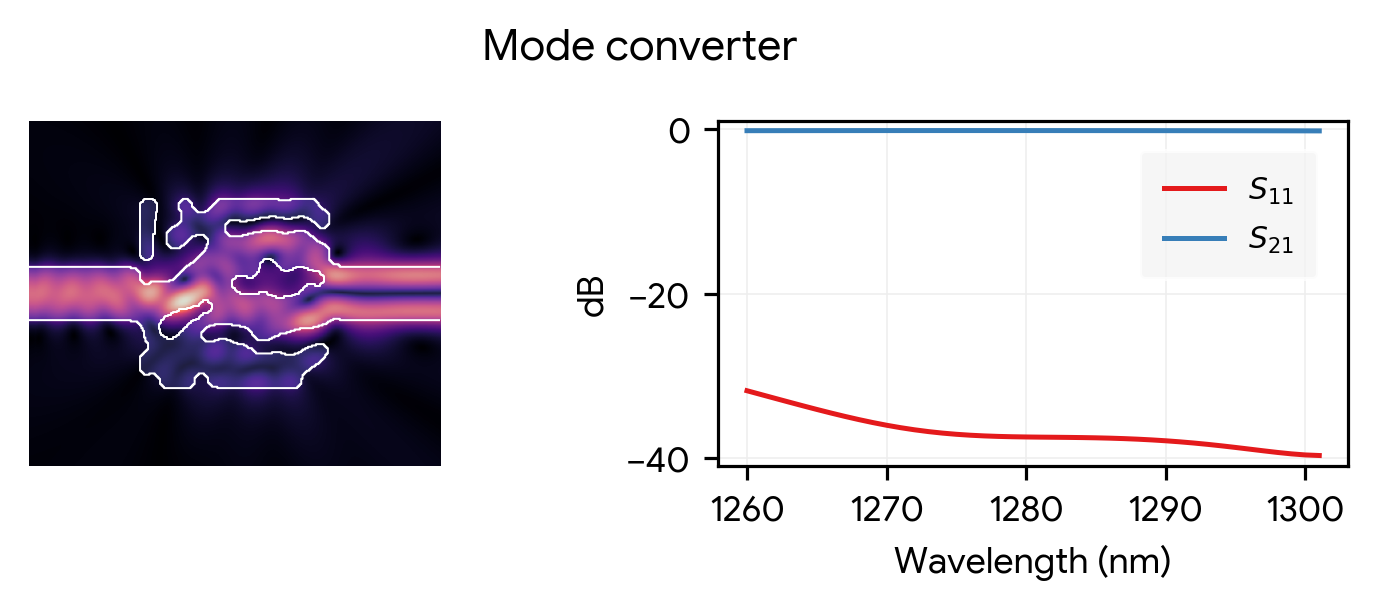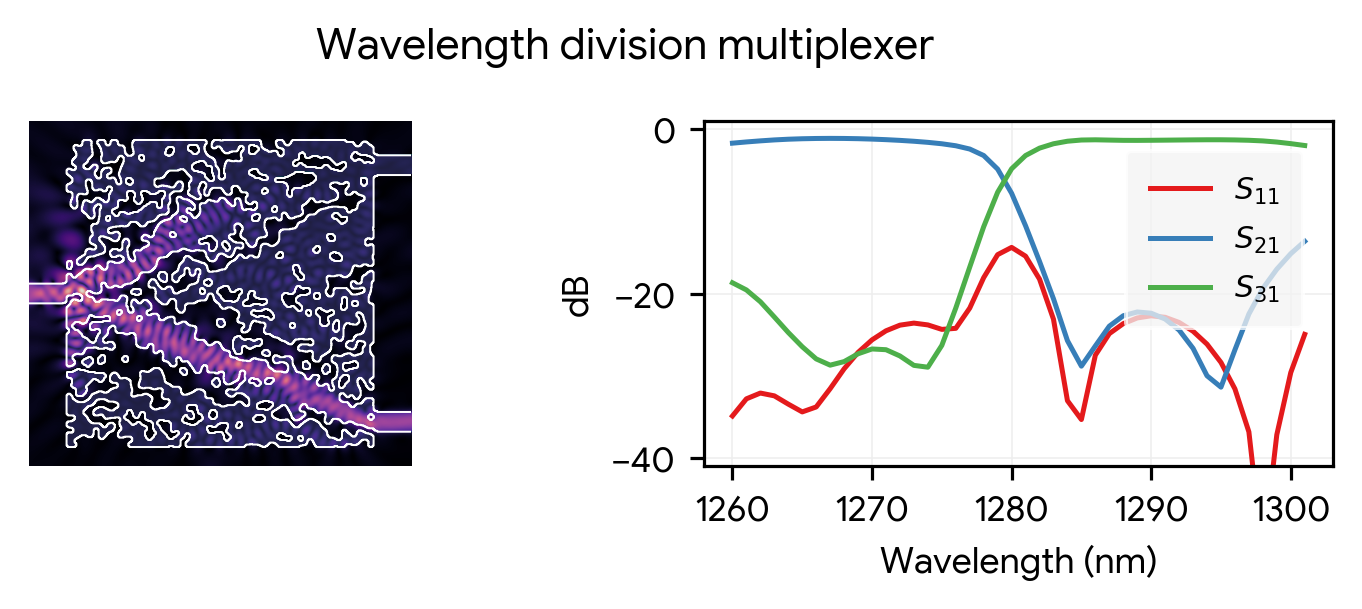The ceviche_challenges module contains a suite of photonic inverse design
challenge problems, backed by the open source
ceviche finite difference frequency
domain (FDFD) simulator, and packaged into a standard API for calculating
scattering parameters and fields. Gradients and automatic differentiation
capabilities are provided by HIPS autograd.
The suite of challenge problems may be used to benchmark different topology optimization algorithms in designing relevant photonic components. The suite includes several integrated photonic components, including a waveguide beam splitter, a waveguide mode converter, a waveguide bend, and a wavelength division multiplexer (WDM).
The code in this module was used to produce the results in the Inverse Design of Photonic Devices with Strict Foundry Fabrication Constraints paper.
ceviche_challenges can be installed via pip:
pip install ceviche_challenges
ceviche_challenges provides several "prefab" component configurations, which
live in the following submodules:
ceviche_challenges.beam_splitter.prefabsceviche_challenges.mode_converter.prefabsceviche_challenges.waveguide_bend.prefabsceviche_challenges.wdm.prefabs
Each component type (i.e. beam splitter, mode converter, etc) has an associated model class for performing simulations and returning complex-valued scattering parameters. An example using the 2 um x 2 um waveguide bend prefab is shown below.
import numpy as np
import ceviche_challenges
spec = ceviche_challenges.waveguide_bend.prefabs.waveguide_bend_2umx2um_spec()
params = ceviche_challenges.waveguide_bend.prefabs.waveguide_bend_sim_params()
model = ceviche_challenges.waveguide_bend.model.WaveguideBendModel(params, spec)
# The model class provides a convenience property, `design_variable_shape`
# which specifies the design shape it expects.
design = np.ones(model.design_variable_shape)
# The model class has a `simulate()` method which takes the design variable as
# an input and returns scattering parameters and fields.
s_params, fields = model.simulate(design)The model class can also be used inside of an objective function to perform an optimization. Gradients and loss function automatic differentiation is supported by HIPS autograd.
import autograd
import autograd.numpy as npa
# Construct a loss function, assuming the `model` and `design` from the code
# snippet above are instantiated.
def loss_fn(x):
"""A simple loss function taking mean s11 - mean s21."""
s_params, _ = model.simulate(x)
s11 = npa.abs(s_params[:, 0, 0])
s21 = npa.abs(s_params[:, 0, 1])
return npa.mean(s11) - npa.mean(s21)
loss_value, loss_grad = autograd.value_and_grad(loss_fn)(design)There are a number of other features in the device model class, such as returning an image of the structure. These features are best explored by reading the code and the function docstrings, as we don't have comprehensive standalone documentation at this time.
If you find ceviche_challenges to be useful for your research, please consider
citing our paper. A BibTex
citation is provided below for convenience.
@article{schubert_inverse_2022,
title = {Inverse Design of Photonic Devices with Strict Foundry Fabrication Constraints},
author = {Schubert, Martin F. and Cheung, Alfred K. C. and Williamson, Ian A. D. and Spyra, Aleksandra and Alexander, David H.},
journal = {ACS Photonics},
volume = {9},
number = {7},
pages = {2327-2336},
year = {2022},
doi = {10.1021/acsphotonics.2c00313},
}



